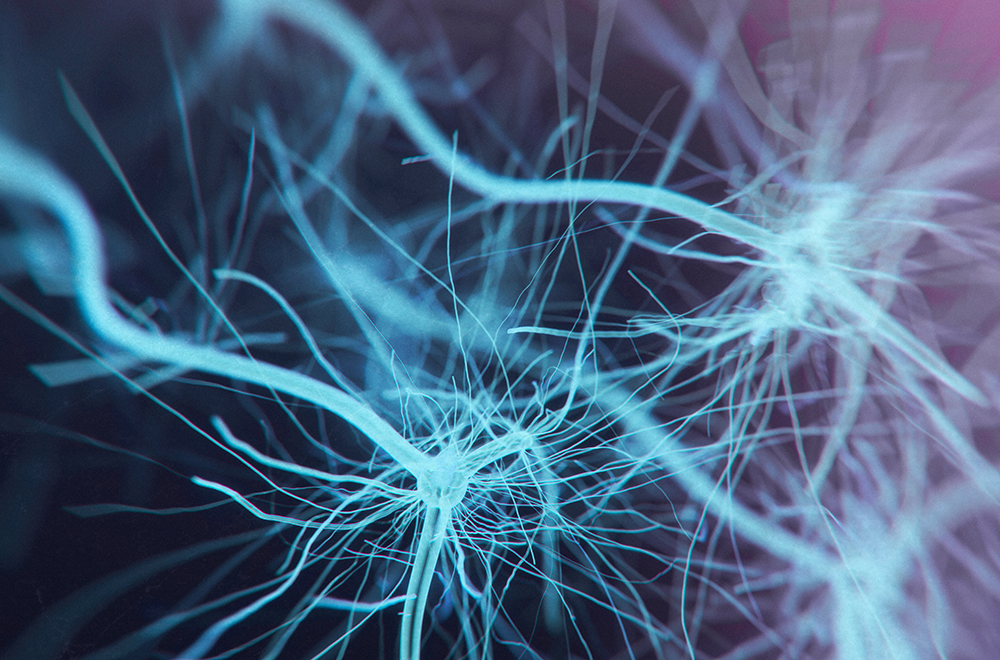The following information should tell you everything you need to know about having an EEG at our EEG Telemetry Unit.
What is an EEG?
An EEG (or ‘electroencephalograph’) is a test to help with the diagnosis and management of epilepsy. ‘Electro’ means the test records electrical impulses or brain wave activity, ‘encephalo’ means the brain, and ‘graph’ means that the brain wave activity is shown on a computer screen.
What does an EEG show?
An EEG records brain wave activity using electrodes to pick up electrical signals from brain cells. When someone has an epileptic seizure, their brain activity changes. This change can be seen on the EEG and is called ‘epileptiform activity’. Some people have epileptiform activity even if they are not having a seizure.
Before you have the test
We will ask you to do the following.
Please take your medication as normal and bring a list of your medication with you. Make sure that you do not have any hair products, such as gel, spray or oil, in your hair. You need to have clean hair for the EEG electrodes to stick to your scalp. Please have something to eat before the test, either breakfast before an EEG in the morning or lunch before an EEG in the afternoon.
Having a routine EEG
The EEG uses a number of small electrodes placed on the head and held in place using a sticky paste. These are connected to the recording machine and computer.
The brain activity recording lasts about 20 to 30 minutes. We will ask you to sit on a chair or lie on a bed. We might ask you to do several things, to help show changes in brain activity that may help with your diagnosis. These are:
deep breathing (hyperventilation) opening and closing your eyes looking at a flashing light (photic stimulation).
Some people have seizures triggered by flashing lights (photosensitive epilepsy).There is a small chance that the deep breathing or the flashing light will trigger a seizure. You will not be asked to do this if you are worried or uncomfortable.
We also make a video recording as part of the test, in case you have a seizure during the EEG. If you have a seizure, we will keep the video as part of your confidential medical records.
After the test
We will remove the electrodes. You will have some paste left in your hair but this will easily wash out with shampoo at home. There are no after-effects from the test - you can carry on your day-to-day activities as normal
Ambulatory and overnight EEGs
Sometimes you might need to have an EEG over a longer period of time. This is usually if we have not been able to get enough information from a routine EEG. With ‘ambulatory EEGs’ we record your brain activity for a longer period of time (usually 24 hours). For ‘overnight EEGs’ we record brain activity throughout the night while you are asleep.
What is the difference between ambulatory and overnight EEGs and a routine EEG?
Ambulatory and overnight EEGs are similar to routine EEGs but the equipment we use is slightly different.
The electrodes are attached in the same way but with a glue called ‘collodion’. These are connected to a portable recording device which you wear in a small carrying bag. This means that you can take the recorder home with you and carry on with your normal day-to-day routine. However, you must not get the recorder wet so it is important not to shower, bath or swim.
We will ask you to keep a diary of what you do.
Frequently asked questions
Will the test hurt?
An EEG is painless. It records the natural electrical activity of the brain. The electrodes do not use electricity.
Are needles involved in the test?
No needles are used. The test is non-invasive.
Can you tell what I am thinking?
We cannot pick up any thoughts you have or read your mind.
Can I wear jewellery?
Jewellery will not affect the test, so you can wear it. You might need to remove any earrings if they get in the way.
When will I get the results?
The results from routine, ambulatory and overnight EEGs will need to be analysed. We will give the results to your neurologist who will talk to you about them at your next appointment.
Having an EEG leaflet
For a printed copy contact our Helpline.
Epilepsy treatment
If you have just been diagnosed with epilepsy, you may have questions about medication and treatment.
Research
The ultimate goals of our current research are to spearhead personalised treatment and to incorporate genomic diagnosis into the NHS for people with epilepsy.
Medical services
The Chalfont Centre and our Gowers unit lead the way in the most advanced techniques for the diagnosis and treatment of epilepsy.




